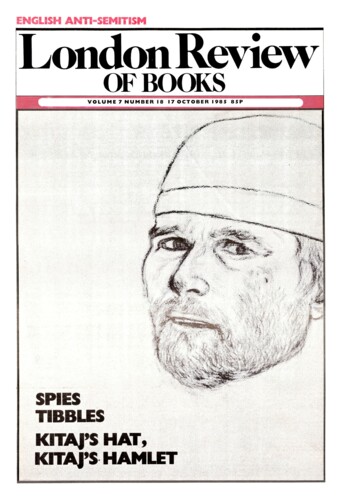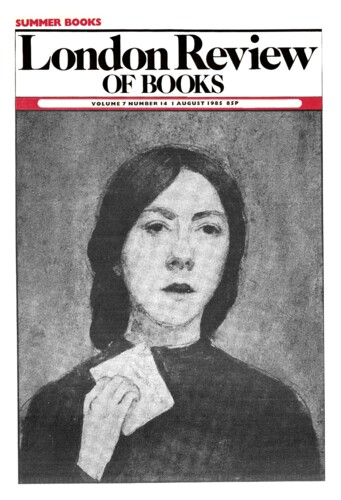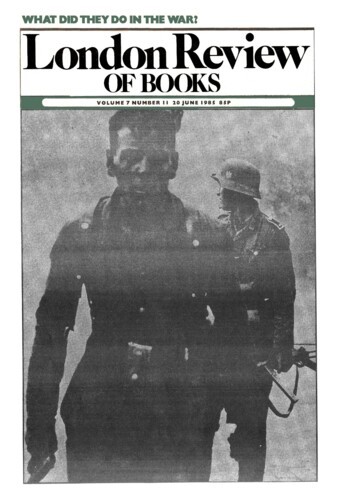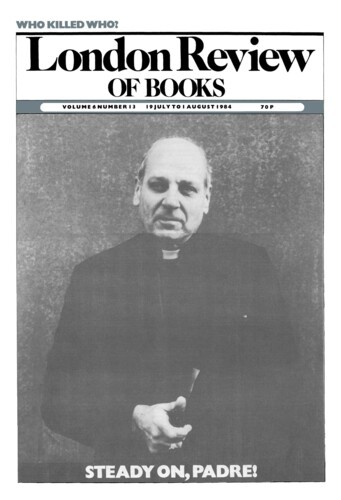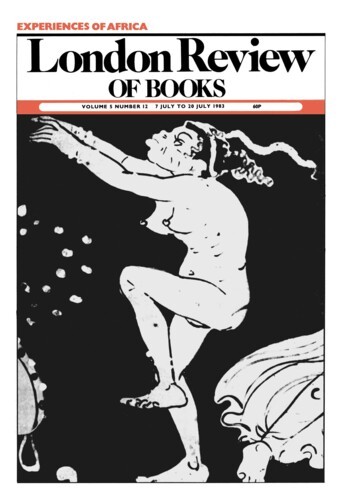Dummy and Biffy
Noël Annan, 17 October 1985
No wonder people think of the secret services as farce or fiction. What is one to make of an organisation whose leaders have names like Dummy Oliver, Blinker Hall, Biffy Dunderdale, Lousy Payne, Buster Milmo, Pay Sykes, Tar Robertson, Barmy Russel and Quex Sinclair (not to be confused with his successor but one, Sinbad Sinclair)? It’s no good reassuring the reader that in the transition from Victorian days, when men called even their closest friends by their surnames, to the present time, when not to know the first name of a casual acquaintance makes it almost impossible to address him without appearing pompous or supercilious, nicknames like Stubby, Toby or Tubby came to be used as a gesture to informality, particularly in the Army and Navy. The reader is likely to think that such men are preposterous and what they do ludicrous. Even in fiction, the secret services are no longer heroic. Gone are the days when Sapper’s Jim Maitland would sun-bathe himself to a frazzle in order to pass in a burnous as an Arab in Tripoli or thwart the machinations of Baron Stockmar in the Sudan (‘It’s the game, Dick: The Great Game. The only game in the world worth playing’).
